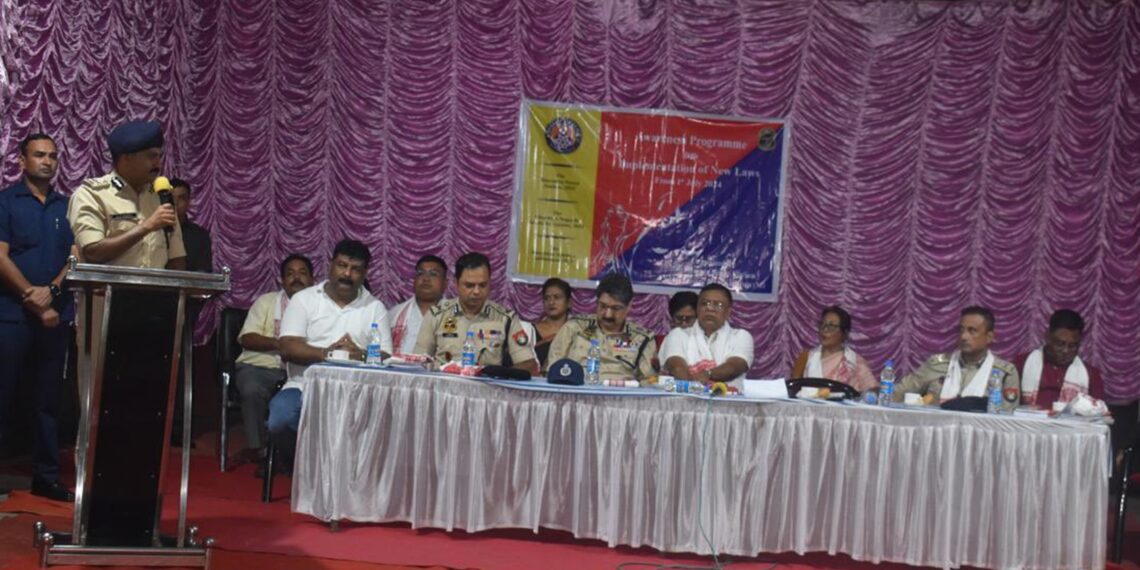GUWAHATI: Following extensive preparations and awareness campaigns, three new criminal laws came into effect in the northeastern states on Monday, aligning with the rest of the country’s efforts to replace outdated British-era laws and expedite justice.
The introduction of the Bharatiya Nyay Sanhita (BNS), Bharatiya Nagarik Suraksha Sanhita (BNSS), and Bharatiya Sakshya Adhiniyam (BSA) marks a significant shift in the legal landscape of the region.
These laws, enacted last year, have superseded the Indian Penal Code (IPC), Code of Criminal Procedure (CrPC), and Indian Evidence Act, respectively.
Over 15,000 police personnel, judicial officials, and staff across seven northeastern states have already received training, with additional training sessions planned for security officers of various ranks to ensure effective implementation.
Assam Chief Minister Himanta Biswa Sarma called the enactment of the BNS, BNSS, and BSA a “watershed moment” for India’s criminal justice system.
On a popular social media platform, Sarma expressed confidence in the modern, citizen-centric approach of the new laws and highlighted extensive preparations in Assam for their effective implementation.
“These laws place utmost primacy on the safety of women, children, and the underprivileged,” Sarma stated.
In Manipur, Chief Minister Biren Singh spoke at the Palace Auditorium in Imphal, underscoring the key benefits of the new legislation.
He noted provisions for a maximum of two adjournments in court cases, the ability to file zero-FIRs at any police station, and the option to file FIRs in one’s own dialect.
Singh also highlighted the importance of sincere implementation by security officers and lawyers to ensure the laws fulfil their purpose.
Arunachal Pradesh Chief Minister Pema Khandu also praised the new laws, noting their potential to transform the country’s criminal justice system.
He pointed out the laws’ focus on timely investigations, easier FIR registrations, and enhanced sensitivity towards crimes against women.
“Gratitude to Prime Minister Shri Narendra Modi ji and Home Minister Amit Shah ji for completely transforming the country’s criminal justice system,” Khandu shared on social media.
In Mizoram, Home Minister K. Sapdanga attended a ceremony in Serchhip District, highlighting the transformative impact of the new laws in enhancing crime prevention and justice delivery nationwide.
“These laws mark the beginning of a new era in our legal framework,” said Minister Sapdanga, stressing the relevance of updating laws to better suit modern technological and societal dynamics.
The introduction of these new laws reflects the Centre’s observation that existing statutes were inadequate for addressing the technological advancements and societal changes of recent decades.
As these new laws take effect, the Northeast and the rest of India are expected to see significant changes in the efficiency and effectiveness of the criminal justice systems.















